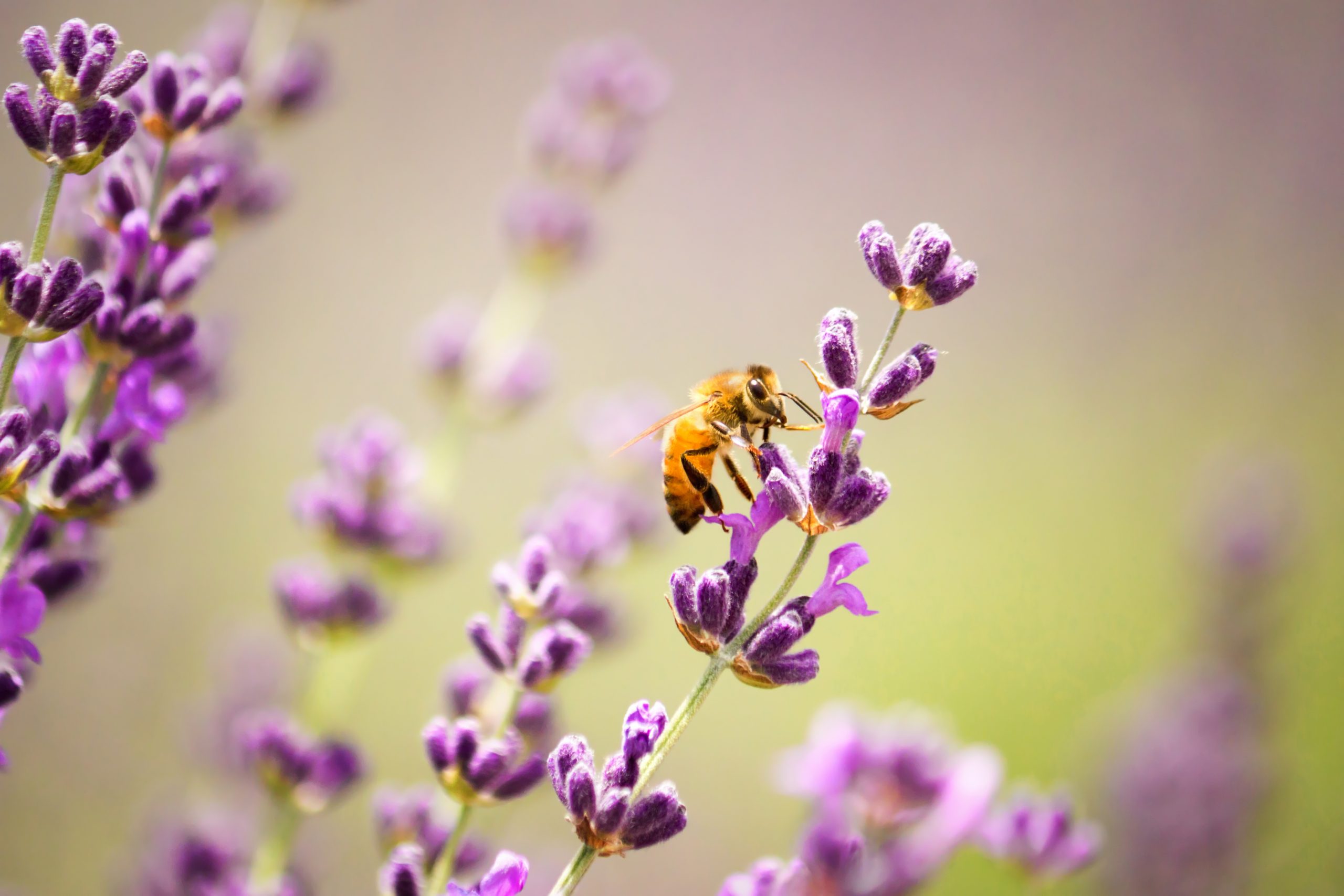Lavender and the Honeybee Brain
April 18, 2016
When one thinks about lavender, that person likely thinks of aromatherapy and the claim it can calm and modify moods. While we hear of it is a powerful, calmative scent for stress or anxiety, most haven’t thought about how it affects honeybees. According to Charles Claudianos, a professor of neurogenetics at Monash University, “What we’ve discovered in the honeybee is that lavender similarly changes their behavior, their memories, even their DNA, and these studies might be potentially very useful in how we study the human brain.”
While the effects of lavender are largely supported by anecdotal evidence, Claudianos and his team are working to discover how lavender compounds physically affect humans—and honeybees, with their strong dependence on smell and their brains’ similar fundamental mechanics to ours, make perfect subjects. Claudianos and his team noticed many similarities between honeybees and humans, such as what we find pleasant to smell, and it affects both species’ memory-making processes. Claudianos's team watched honeybees as their aggressive responses were triggered by certain smells—the smell of bananas, for example, is the same pheromone for bees’ alarm systems—and they wanted to see if bees would remember lavender as a pleasant scent.
To test this, the team took young, unexposed honeybees, brushed lavender against their antennaes, and gave them a drink of sugar water immediately after (just like Pavlov’s classical conditioning experiments); they repeated this several times. Coming back the next day, the bees showed they remembered the association between lavender and sugar, and they remembered it for most of their lives. This experiment showed honeybees could learn to prefer lavender, but a later experiment showed they preferred it naturally. Claudianos purposely triggered different bee subjects’ alarm systems, and then released lavender compounds. The results showed the scent regulated their moods both in a lab setting and in the field.
After showing lavender can affect memory making and mood regulation, Claudianos and his team focused on the effects of scents on honeybee DNA. Their theory was olfactory (sense of smell) cues like lavender were directly linked to the expression of certain genes—meaning bee genes could be turned on or off based on their environment. This process—methylation—involves environmental cues causing certain molecules to attach to DNA, thereby “turning off” certain expressed genes. Claudianos used a cancer drug to stop methylation in honeybee subjects, conditioning them to not switch genes on or off—this affected their long term memories because they could not keep memories without changes in their DNA. These results could have significant implications for human mental health, given the importance of scent for long term memory and degenerative memory disorders.
The experiments on lavender and honeybees are in the end meant to be the first stage in understanding long term memory in the human brain. The hope by Claudianos’s team is their research will translate into practical uses for mental health disorders. While it is too early to tell, Claudianos and his team are hopeful the honeybee brain is indicative of how lavender and other scents affect or even help the human brain—on a normal day or when something abnormal has affected it.


.jpg)




